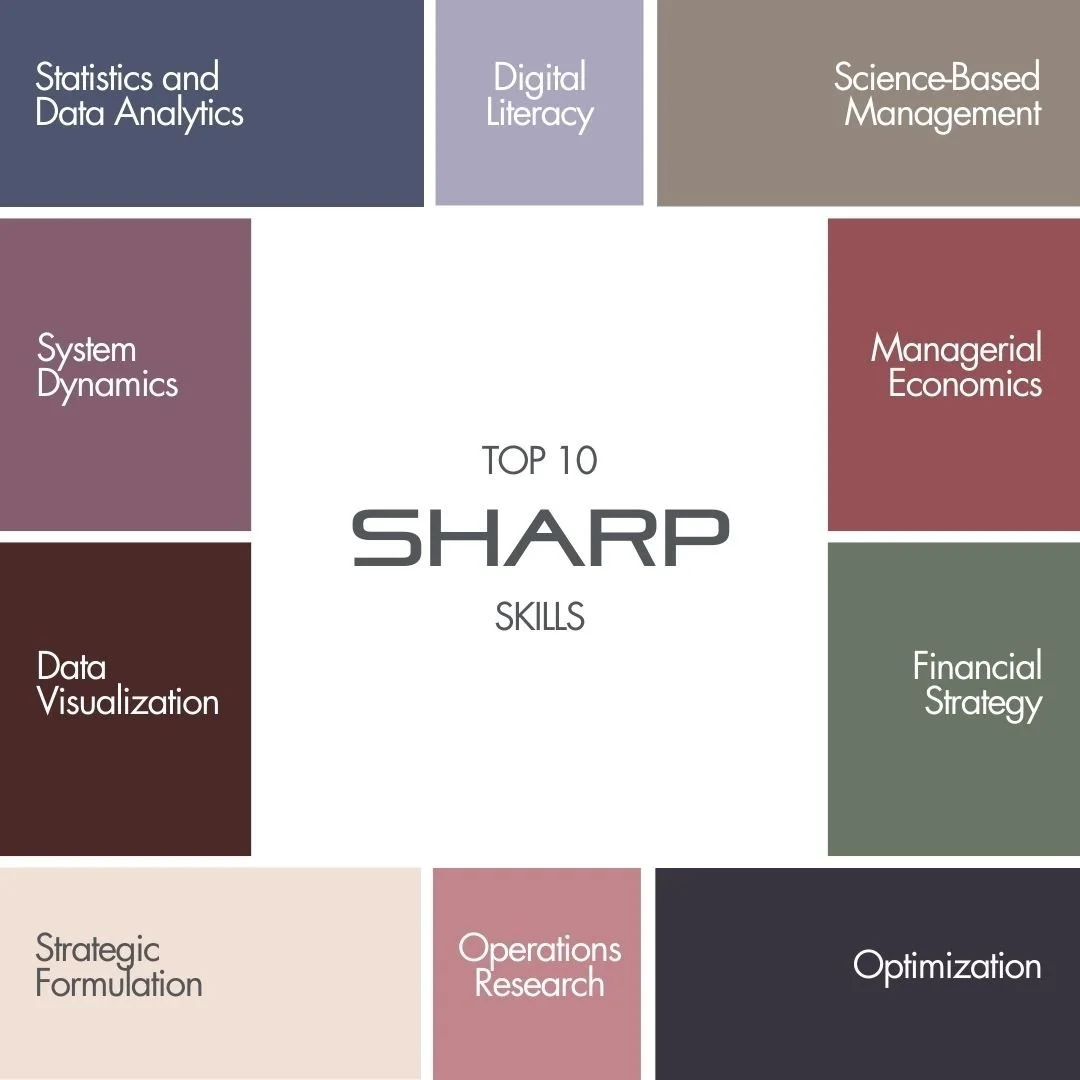“She’s unapologetically herself and challenges all conventions!””
Enough with Soft and Hard. Let’s get Smart and Sharp instead!
What are the skills of the future? This is a question in everyone’s mind: career professionals, employers, students and graduates, academic and practitioners. What “soft” skills should we work on and what “hard” skills should we invest in?
But what if the skills of the future are not “soft and hard” but rather “smart and sharp”?
Here is the simple premise of this article: a new semantical approach and an articulation of their critical co-existence in action!
——————-
We are all familiar with the concepts of ‘soft’ and ‘hard’ skills but do you know their semantical history?
The soft and hard skill terminology was coined in 1972 by a research team in the U.S. Army to differentiate people who were good at machine operations, coining these skills “hard”, from those who did well in people related, supervision roles, coining them as “soft skills”.
And since 1972, this ubiquitous terminology has served us well. But just like all other fields of study who get to constantly revise critical concepts, we believe that this terminology needs a fresh, new approach.
As a business school professor and a leader, I am faced every day with situations where I see either students, staff or partners being faced with difficult situations: giving and receiving feedback, managing complex stakeholders, dealing with office politics, and I always wondered “What’s soft about it?”
smart VS soft
Dictionaries define the word “soft” with words like smooth, mild, gentle, quiet, tender, and weak. However, it turns out there is nothing “soft” about managing diverse teams. Navigating competing perspectives and cultures does not come smoothly; pitching and presenting projects is not a tender act; handling and delivering critical feedback often is not mild; and dealing with office politics is certainly not for the weak. So why do we still refer to these skills as soft?
Top 10 Smart Skills by Prof. Loredana Padurean
sharp vs hard
Analogously, “hard” is defined with words like firm, rigid, resistant, free of weakness, unlikely to change, harsh, severe. But should the so-called hard skills required today—such as coding, finance, accounting, statistics, mathematics, machine learning, engineering—be defined by these attributes? Considering the constant changes in technology, and the subsequent need for users to adapt, these characteristics hardly seem fitting.
Top 10 Sharp Skills by Prof. Loredana Padurean
Dictionaries define the word “soft” with words like smooth, mild, gentle, quiet, tender, and weak. Navigating competing perspectives and cultures does not come smoothly; pitching and presenting projects is not a tender act; handling and delivering critical feedback often is not mild; and dealing with office politics is certainly not for the weak. So why do we still refer to these skills as soft?
In a similarly fashion, calling accounting or learning pivot tables on Excel, ‘hard’ will just petrify people before they can even learn it. Dictionaries define the word “hard” with words like firm, rigid, resistant, free of weakness, unlikely to change, harsh, severe. But should the so-called “hard” skills required today—such as coding, system dynamics, finance, accounting, statistics, machine learning, engineering—be defined by these attributes? Considering the constant changes in technology, and the subsequent need for users to adapt, these characteristics hardly seem fitting.
And that’s why, I have decided that is time for a semantical update and together with MIT Sloan Professor, Charlie Fine, we are proposing two new concepts “Smart Skills” (replacing soft) and “Sharp Skills” (replacing hard) and a new interpretation of how we should think of these skills in action.
Smart and Sharp! Is this just a matter of semantics?
You are probably asking yourself now “Does it matter how we name the skills, as long as we have them?” In an attempt to answer this question, allow me to share a quote from UC San Diego Prof. Lera Boroditsky, a leading cognitive scientist in the fields of language and cognition and former faculty at MIT.
“By choosing how you frame and talk about something, you are causing others to think about it in a specific way. We can drastically change someone’s perspective by how we choose to talk about and frame something.”
Think about this. Narratives are created over time; a few years back, catfish was only a fish but in today’s verbiage, it has a whole new meaning.
We assign new meanings to words every time we speak in a particular context and hence, Charlie and I believe that both these skill sets i.e., smart and sharp, need to be looked at in light of the roles that each play in our day to day lives.
“The job is easy, the people are not!”
This is the most important lesson I have learnt from one of my colleagues, Prof. Nancy Waldron, Lasell College.
But the second most important lesson I have learnt is that I am people! And so are you and the person next to you.
Humans are complex algorithms: think computers but with mood swings, hunger pangs, and plenty of ego that need constant validation; therefore the need for smart skills to “augment our own humanity” such as becoming cognitively ready, develop our adaptability and humility, learn to listen and to follow, and so much more.
Same goes for “sharp skills”. We need to constantly learn how to optimize business solutions using science based management, data analytics and analytical reasoning, we have to become digitally literate and employ system dynamic thinking. And we cannot say, once you have learnt these skills, you are done. These skills need constant updating, they need to be sharpened at all times!
This article was first published by AACSB BizEd on April 01, 2019 and picked up by MIT Sloan Experts on April 03, 2019.



